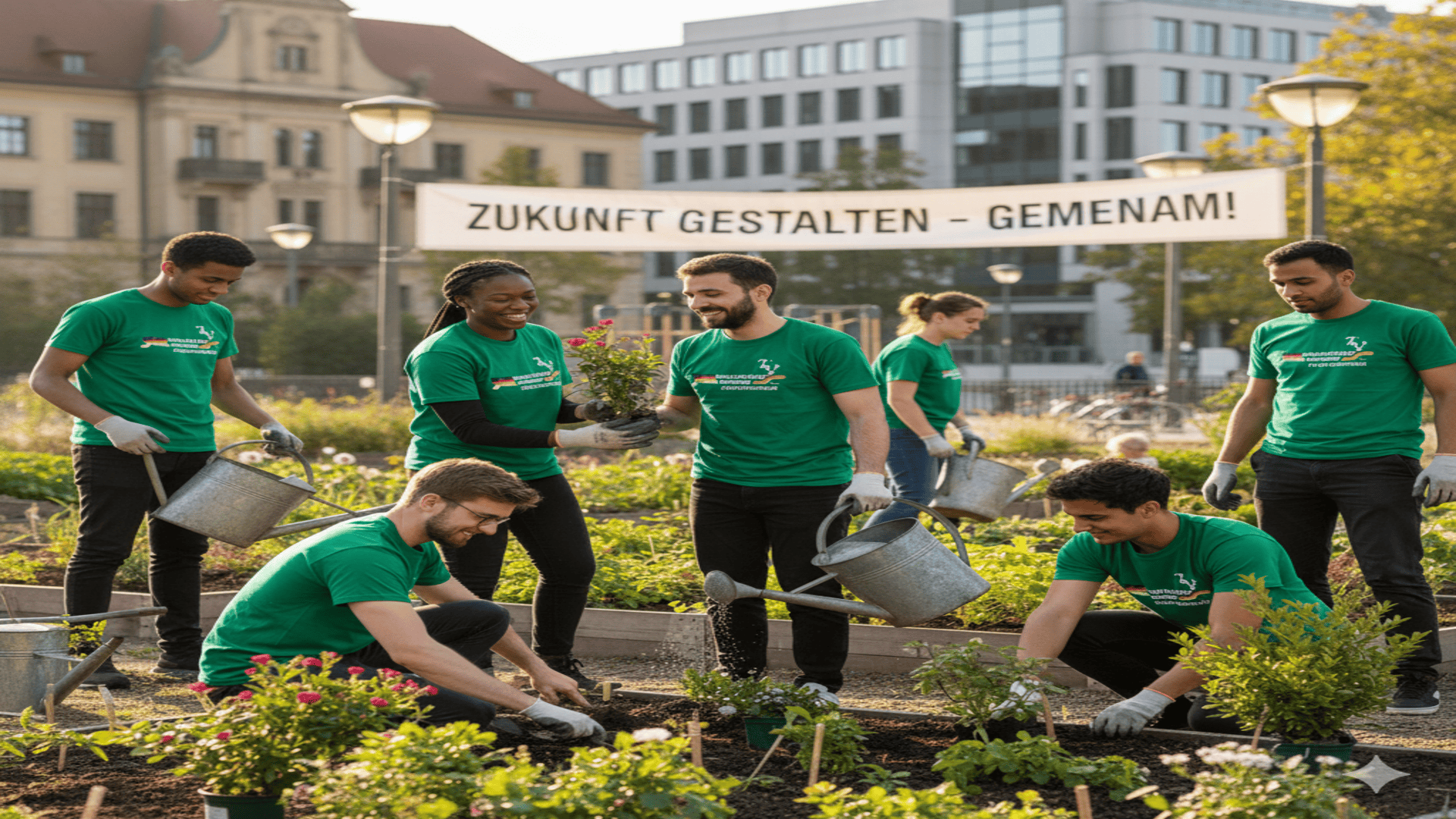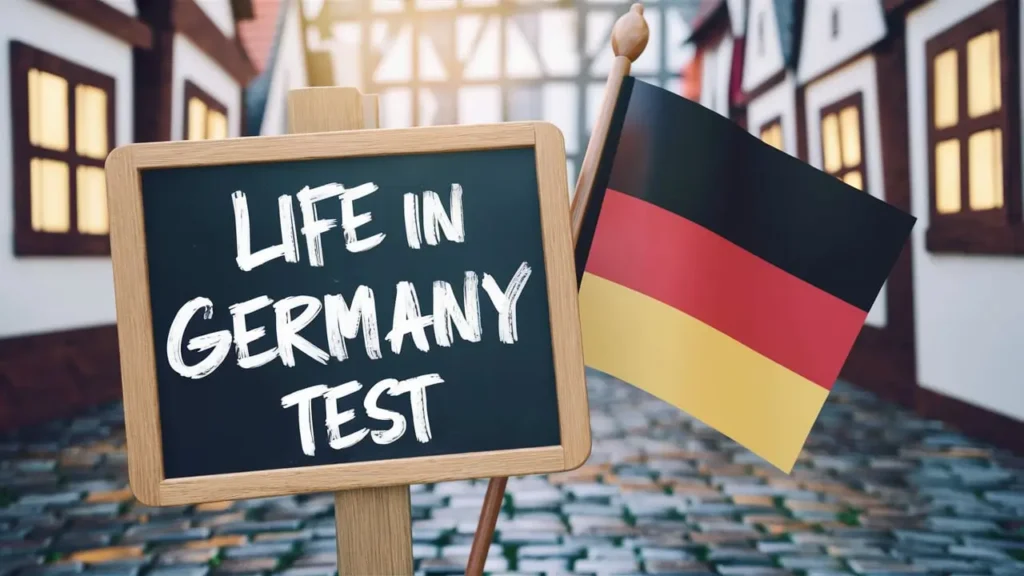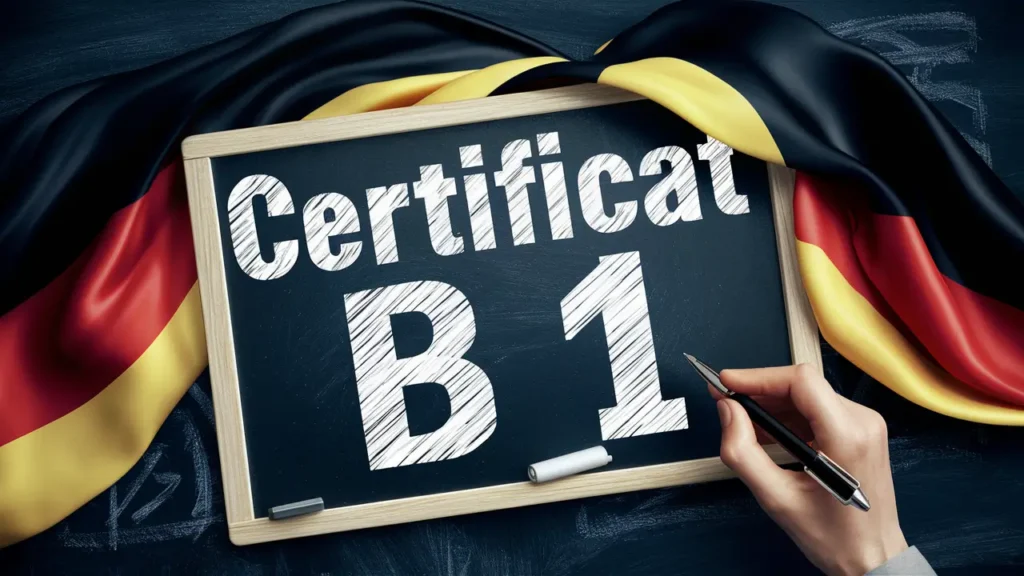Germany offers various pathways to citizenship, but not everyone knows that exceptional achievements and special contributions can potentially open a route to Fast German Citizenship. For individuals making significant impacts in scientific, cultural, economic, or sporting realms, the standard waiting periods might be reduced. This lesser-known pathway attracts talented professionals worldwide who seek to establish their life in Germany while contributing meaningfully to German society. But what exactly qualifies as a “special contribution”? How much faster can you obtain German citizenship through this route? Is this pathway realistic for most foreign residents in Germany, or does it remain exclusive to extraordinary cases?
What is Fast-Track Citizenship in Germany?
Fast-track citizenship, officially known as “discretionary naturalization” (Ermessenseinbürgerung) with reduced residency requirements, allows exceptional foreign nationals to obtain German citizenship in a shorter timeframe than the standard process. This provision is outlined in Section 8 of the German Nationality Act (Staatsangehörigkeitsgesetz), which grants authorities the discretion to shorten the usual residence requirement when special public interest exists.
Regular naturalization typically requires 5 years of legal residence in Germany (or 3 years with successful integration courses). However, through the fast-track option, authorities can reduce this requirement significantly in exceptional cases.
According to the Federal Ministry of the Interior and Community, the minimum residence period cannot be waived entirely, but it can be substantially shortened for individuals whose exceptional contributions serve Germany’s special interests.
Who Qualifies for Special Contribution Fast-Track Citizenship?
Qualifying for fast-track citizenship through special contributions requires extraordinary achievements or skills that serve Germany’s national interests. The law doesn’t provide an exhaustive list but focuses on contributions that benefit Germany significantly.
What Fields Are Considered for Special Contributions?
Fast-track citizenship typically considers exceptional contributions in these key areas:
| Field | Examples of Qualifying Contributions |
|---|---|
| Science & Research | Groundbreaking discoveries, leading research projects, prestigious academic positions |
| Arts & Culture | Internationally recognized artistic achievements, cultural ambassador roles |
| Sports | Olympic or international success representing Germany |
| Business & Economy | Job creation, significant investments, technological innovation |
| Education | Exceptional teaching contributions, educational reform |
What Level of Achievement is Required?
The threshold for qualifying achievements remains deliberately high. The German authorities look for contributions that:
- Demonstrate exceptional talent beyond ordinary professional success
- Create tangible benefits for Germany on a national level
- Receive recognition within the relevant professional community
- Show potential for continued positive impact
“When I was recruited to lead a research team at the Max Planck Institute, my citizenship application was expedited from the standard 5 years to 3 years because of my specialized work in quantum computing. The authorities recognized that my research contributes to Germany’s leadership in emerging technologies.” – Dr. Sarah Chen, Physicist
How Much Faster Can You Obtain German Citizenship?
The acceleration varies significantly based on individual circumstances and the magnitude of contributions. While the law provides flexibility, most successful fast-track applicants still complete 2-4 years of residence before qualifying for naturalization.
The greatest reductions typically benefit those with truly extraordinary contributions. For example, an Olympic athlete representing Germany might qualify after just 2 years of residence, while a successful entrepreneur creating hundreds of jobs might qualify after 3-4 years.
It’s important to note that no matter how exceptional the contribution, some minimum residence period remains necessary. The authorities must ensure the applicant has established sufficient ties to Germany and demonstrates potential for continued integration.
What is the Application Process for Fast-Track Citizenship?
The application process for fast-track citizenship follows the standard naturalization procedure with additional documentation highlighting your special contributions.
What Documents Should You Include?
Beyond the standard naturalization requirements, you should prepare evidence that showcases your exceptional contributions:
- Detailed curriculum vitae highlighting your achievements
- Recognition letters from relevant German institutions
- Awards, publications, or press coverage documenting your contributions
- Expert testimonials supporting the significance of your work
- Documentation of economic impact (for business contributions)
- Evidence of continued commitment to Germany
What Are the Standard Requirements That Still Apply?
Even through the fast-track process, applicants must meet these fundamental requirements:
- Legal residence in Germany (though for a reduced period)
- Secure livelihood without relying on social benefits
- Adequate German language skills (typically B1 level)
- Knowledge of German legal system and society
- No serious criminal record
- Commitment to the German constitutional order
- Willingness to renounce previous nationalities (with exceptions)
For detailed information on standard naturalization requirements, visit the official German government services portal.
What Are Real-World Examples of Fast-Track Citizenship?
While the authorities don’t publicize many individual cases, some patterns emerge from successful applications:
“After establishing my tech startup in Berlin that created over 50 jobs within two years, I was able to apply for German citizenship after just 4 years of residence instead of 8. The economic contribution and innovation aspect were key factors in the decision.” – Marcus Andersson, Tech Entrepreneur
Notable categories of successful fast-track applicants include:
- Scientific researchers leading programs at prestigious German institutions like Max Planck or Fraunhofer
- Cultural figures who enhance Germany’s international reputation through their work
- Professional athletes representing Germany in international competitions
- Entrepreneurs who create significant employment opportunities or innovative businesses
- Medical specialists with rare expertise addressing German healthcare needs
What Are the Limitations and Challenges of Fast-Track Citizenship?
While the fast-track option presents an attractive opportunity, applicants should approach it with realistic expectations.
What Makes This Path Challenging?
- High threshold for qualification: Only truly exceptional contributions typically qualify
- Discretionary process: Decisions remain at the authorities’ discretion
- Regional variations: Implementation varies between different states (Bundesländer)
- Limited precedent: Few published cases make outcomes difficult to predict
- Continued standard requirements: Language proficiency and other standard requirements still apply
How Do States Differ in Their Approach?
German federalism creates regional variations in how authorities interpret “special interest.” States with talent shortages in specific sectors might show greater flexibility than others. For example, Berlin and Bavaria often demonstrate more openness to fast-tracking entrepreneurs and tech specialists, while other states might prioritize different contribution areas.
How Does the New German Citizenship Law Affect Fast-Track Options?
The recent changes to German citizenship law that took effect in 2023 maintain and potentially enhance the special contribution pathway. The reformed law generally reduces the standard residence requirement from 5 to 3 years (and to 3 years for those showing exceptional integration).
For those making special contributions, this creates two potential advantages:
- The baseline requirement has been reduced, potentially allowing for even shorter paths for exceptional cases
- The explicit recognition of “exceptional integration” provides another potential fast-track avenue
While the core provisions for special contributions remain similar, the reformed citizenship law signals Germany’s increased openness to attracting and retaining global talent.
Is Fast German Citizenship the Right Path for You?
The special contribution pathway offers a valuable opportunity for certain exceptional individuals, but it’s important to assess your situation realistically.
This pathway might be appropriate if:
- Your contributions demonstrably exceed normal professional success
- Your work creates tangible benefits for Germany at a national level
- You’ve received formal recognition for your achievements
- You can document the exceptional nature of your contributions
For most skilled foreign residents in Germany, the standard naturalization process or the new shortened paths for exceptional integration remain more accessible options. If you’re uncertain about your qualifications, consulting with an immigration attorney specializing in German nationality law can provide personalized guidance.
The Strategic Approach to German Citizenship
Germany’s willingness to fast-track citizenship for exceptional contributors reflects its commitment to attracting and retaining global talent. While this pathway remains selective by design, it offers a meaningful option for those making significant impacts in German society.
Whether through special contributions, the standard path, or other naturalization options, German citizenship represents a significant commitment to your future in Germany. The most successful applications demonstrate not just technical eligibility but also genuine integration and commitment to German society.
For those with exceptional achievements benefiting Germany, the fast-track option recognizes your contributions by shortening your path to full participation in German society as a citizen. While challenging to access, this opportunity aligns with Germany’s strategic goal of remaining competitive in the global talent landscape.
Frequently Asked Questions
Can family members also benefit from fast-track citizenship?
Family members don’t automatically qualify for fast-tracked citizenship based on a relative’s special contributions. However, they may benefit from family reunification provisions and potentially expedited standard naturalization processes.
Do I need to give up my original citizenship if I qualify for fast-track naturalization?
The same rules regarding dual citizenship apply to fast-track applicants as to standard applicants. While Germany generally requires renouncing previous citizenships, exceptions exist for EU citizens and cases where renunciation is impossible or unreasonable.
Can I apply for fast-track citizenship immediately upon arriving in Germany?
No. Even with exceptional contributions, some minimum residence period in Germany is required, typically at least 2-3 years. Authorities need to evaluate your integration and continued commitment to Germany.
How long does the fast-track citizenship application process take?
Processing times vary significantly between different immigration offices. Even through the fast-track program, expect a processing time of 6-18 months after submitting your application, depending on your location and case complexity.
If my fast-track application is rejected, can I still pursue standard naturalization?
Yes. If authorities determine you don’t qualify for the reduced residence requirement, you can continue residing in Germany and apply through the standard naturalization process once you meet the regular residence requirements.




